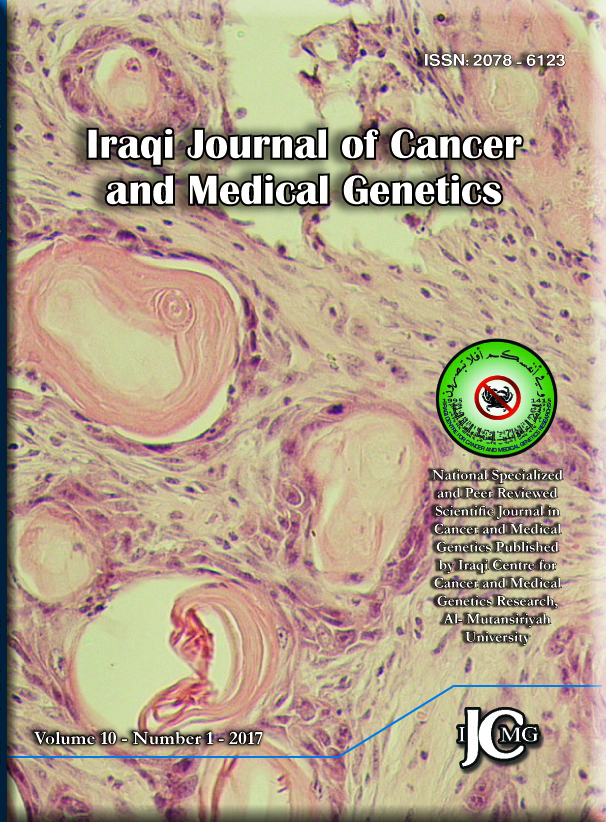Abstract
This study was carried out to establish the correlation between expression of Transforming growth factor beta receptor
one (TGF-βRI) and Transforming growth factor beta receptor two (TGF-βRII) and prostate cancer progression, and to
establish the role of prostate cancer development. Immunohistochemistry (IHC) technique was used to detect the level of expression of TGF-βRI and TGF-βRII protein in tissues of patients and healthy control groups. TGF-βR1 protein was expressed in 3 (18.7%) and 14 (56%) of poorly and moderately differentiated malignancy respectively. There was significant difference in mean level of TGF-βRI protein expression among all studied groups. TGF-βRII protein was expressed in 6 (37.5%) and 22 (88%) of poorly and moderately differentiated malignancy respectively, There was significant difference in mean level of TGF-βRII protein expression among all studied groups. We concluded that there was statistically significant association between the loss of expression of TGF-β1 signaling receptors, especially TGF βRI, and increasing grades of malignancy in prostate cancer, leading to a more malignant phenotype.
one (TGF-βRI) and Transforming growth factor beta receptor two (TGF-βRII) and prostate cancer progression, and to
establish the role of prostate cancer development. Immunohistochemistry (IHC) technique was used to detect the level of expression of TGF-βRI and TGF-βRII protein in tissues of patients and healthy control groups. TGF-βR1 protein was expressed in 3 (18.7%) and 14 (56%) of poorly and moderately differentiated malignancy respectively. There was significant difference in mean level of TGF-βRI protein expression among all studied groups. TGF-βRII protein was expressed in 6 (37.5%) and 22 (88%) of poorly and moderately differentiated malignancy respectively, There was significant difference in mean level of TGF-βRII protein expression among all studied groups. We concluded that there was statistically significant association between the loss of expression of TGF-β1 signaling receptors, especially TGF βRI, and increasing grades of malignancy in prostate cancer, leading to a more malignant phenotype.
Keywords
BENIGN
malignancy
moderate
prostate cancer
prostatic hyperplasia
TGF-βRI
TGF-βRII
